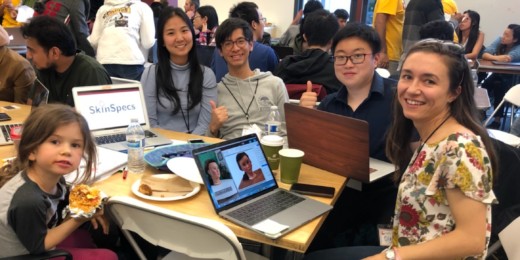For Christopher Lopez, currently a third-year medical student, the Stanford Medicine campus is more than just where he’s pursuing his MD-PhD degree -- it sits on the ancestral land of the Ohlone people.
Category: Dermatology
Ask Me Anything: Skin cancer and skin care
Stanford Medicine's Zakia Rahman discusses skin cancer prevention and tips to have healthy skin in this Ask Me Anything.
Are ‘natural’ skin products irritating your skin?
Two Stanford Medicine dermatology experts weigh in on the possible allergies associated with "natural" skincare products.
Training physicians and algorithms in dermatology diversity
Researchers are addressing bias in algorithms that detect dermatology diseases by adding more diverse skin tone images to data sets.
Stanford residents aim to make clinics more sustainable
Stanford Medicine resident and collaborators spearhead an effort to decrease waste from dermatology clinics.
Changing infant care to improve newborns’ health in India
Modifying traditional infant massages led to more weight gain and fewer illnesses among newborns in a Stanford-led community study in India.
Does retinol deserve the hype? A Stanford dermatologist weighs in
A Stanford dermatologist weighs in on using retinol to fight aging, acne and other skin problems, and whether it deserves the hype.
Fighting skin cancer with Facebook, YouTube and…rap?
Stanford researcher Eleni Linos turned to social media to see if it was a more effective way to spread information about skin cancer and tanning to youth.
May I have this dance? Nuclear chaperones guide transcription factors to DNA
Proteins that guide transcription factors from the nuclear membrane to the DNA cause drug-resistant skin cancers and are new targets for drug development.
Hackathon prize winner seeks to remotely monitor patient skin conditions
A health hackathon inspired a Stanford dermatology resident to pursue a project to make it easier to monitor patients with chronic skin conditions.
Developing cells rely on genetic switches, DNA looping to become different tissue types, Stanford researchers find
DNA looping, or folding, directs a cell's developmental fate. Harnessing this 'DNA origami' could help researchers generate specific tissues for therapies.
Frequent skin cancers might indicate increased risk for other cancers
People who develop abnormal numbers of skin cancers called basal cell carcinomas may be at increased risk of other, unrelated internal cancers.













